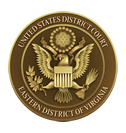1. Office Hours:
The courthouse building and the Clerk’s Office are open to the public from 8:30 a.m. to 5:00 p.m. Monday through Friday. Pleadings may be filed electronically 24 hours a day by filing users.
2. Telephone Inquiries:
Try to have the case number of the case about which you are calling. We can find cases by name, but it is much faster to use the case number. Our cases are assigned to case managers by the last digit of the docket number, so knowing the number enables you to talk with the specific case manager who is most knowledgeable about that case.
3. Attorney Civil Case Opening Procedures: Effective November 1, 2018, attorneys are required to electronically open civil cases and pay the appropriate filing fee via Pay.Gov. Please click here for more information.
4. Discovery documents:
Discovery and other disclosures are not to be filed per Federal Rule 5(d)(1) and the Rule 16(b) scheduling order. Disclosures under 26(a)(1) and (2) are to be made among counsel only. Disclosures under 26(a)(3) are to be made among counsel and included as part of the final pretrial order, but are not to be filed earlier.
5. Paper Documents:
Originating documents and Orders submitted on paper must contain an original signature. If possible, sign the original in blue ink so that we can more easily distinguish it from any copies. Faxed documents are not accepted for filing. If you want a copy of a document returned to you via mail, please include a copy of your document and a SASE large enough for the document.
6. CM/ECF Procedures:
Please refer to our CM/ECF page for policies and procedures.
7. Signing for another attorney:
You must sign your name and you must be admitted to practice in this Court. Additionally, in electronic cases, an attorney must be qualified to file electronically. (See CM/ECF section of this website for information on how to register for electronic filing). Once you have signed a pleading, you are added as counsel of record in that case.
8. Agreed orders:
Our court requires an agreed order for unopposed motions, extensions of time, dismissal of parties/cases, etc. The agreed order must contain an original signature or nine-element signature block of an admitted attorney for each party who has entered an appearance. Even if the order grants an extension of time for only one party in the action or dismisses one party, counsel for each party in the case must endorse the order.
9. Foreign counsel:
Attorneys who are admitted pro hac vice may endorse pleadings, however, our Local Rules require the endorsement of local (admitted) counsel on all pleadings. The pro hac vice application form is required. Other forms and motions are not allowed.
10. Entry of default and default judgment:
Pursuant to Federal Rule 55(a), counsel must request entry of default, with a notarized affidavit in support of the default, prior to moving for default judgment.
11. Documents under seal and personal identifiers:
Local Rules 5 and 49 govern the filing of sealed pleadings. Local Rules 7 and 47 govern the redaction of personal identifiers from filings. Please consult these rules which set forth the responsibilities of counsel.
12. Electronic signature:
All electronically filed documents must contain the nine (9) element signature block on the pleading and again on the certificate of service if necessary. (See CM/ECF policies and procedures manual for guidelines concerning electronic signatures and certificate of service.)
13. Security reminder:
Please visit the Norfolk or Newport News Division page and review the Important Security Information regarding access to the courthouse, devices allowed, and how attorneys may obtain approval to bring laptops into a courtroom.
14. Legal advice:
Clerk’s Office staff are prohibited from interpreting the Federal Rules, Local Rules, and judge’s rulings. We are happy to answer procedural questions or refer you to an applicable rule before you file a case or document. Please use us as a resource – we are here to help.
Civil (757) 222-7201
Criminal (757) 222-7202
Financial (757) 222-7200
Jury (757) 222-7205
15. Attorneys are encouraged to review the Code of Pretrial and Trial Conduct.
